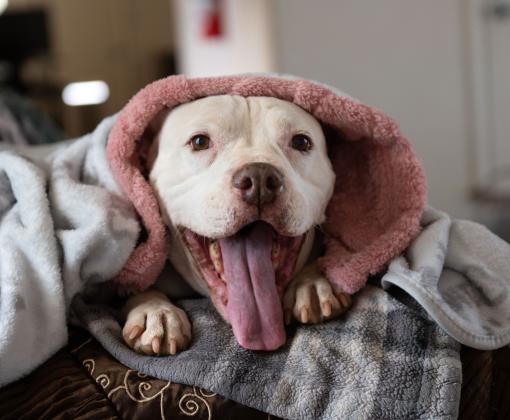
Dog Spay/Neuter Benefits and What to Expect
There are many benefits when you spay or neuter a dog. The routine medical procedure not only helps minimize the number of homeless pets who end up in shelters, but it also can allow dogs to lead longer, healthier, and happier lives. Here are some FAQs about dog spay/neuter.
What is spaying/neutering for dogs?
Spaying is the surgical removal of a female dog’s ovaries and uterus, while neutering is the removal of a male dog’s testicles. Both operations are conducted routinely with few complications, but only licensed veterinarians are allowed to perform them.
Before surgery, your veterinarian might carry out a complete physical examination of your dog or draw a blood sample for analysis. To minimize pain and discomfort, both spaying and neutering are conducted while a dog is under general anesthesia.
Following surgery, your veterinarian will instruct you on how to care for your dog during recovery. Most dogs are back to normal within a few days. The surgery site usually heals within two weeks, and any skin stitches are removed at a followup appointment with your vet.

See how your community is doing
Why should I spay or neuter my dog?
Spaying or neutering dogs prevents unwanted births, which means that fewer pets end up in our nation's shelters. When you have your dog spayed or neutered, you are doing your part to reduce the number of animals killed in shelters simply because they don't have a safe place to call home.
Spay/neuter also can have a positive effect on some behavioral issues, such as urine marking and aggression. Sexual behavior in both male and female dogs is reduced following surgery. Neutering male dogs reduces mounting and the urge to roam. In female dogs, the inconvenient “heat” cycle — with its messy, bloody discharge — is eliminated. Spay/neuter also eliminates or greatly reduces the development of mammary tumors in female dogs and reproductive organ tumors in both sexes.
Will my dog’s personality change?
Spaying or neutering dogs is unlikely to change their basic personality. A dog’s playfulness, and general levels of activity and excitement, do not typically change.
Your dog will continue to interact with your family in the same manner as before the surgery. It’s possible that your pet will gain weight, but weight gain can be prevented by proper diet and sufficient exercise.
When should I spay/neuter my dog?
Healthy dogs as young as 6 weeks old can be spayed or neutered safely. Studies have recommended that male dogs be neutered before 6 to 8 months old. For female dogs, the surgery should ideally be performed before their first heat cycle. If you have questions, talk to a veterinarian.
